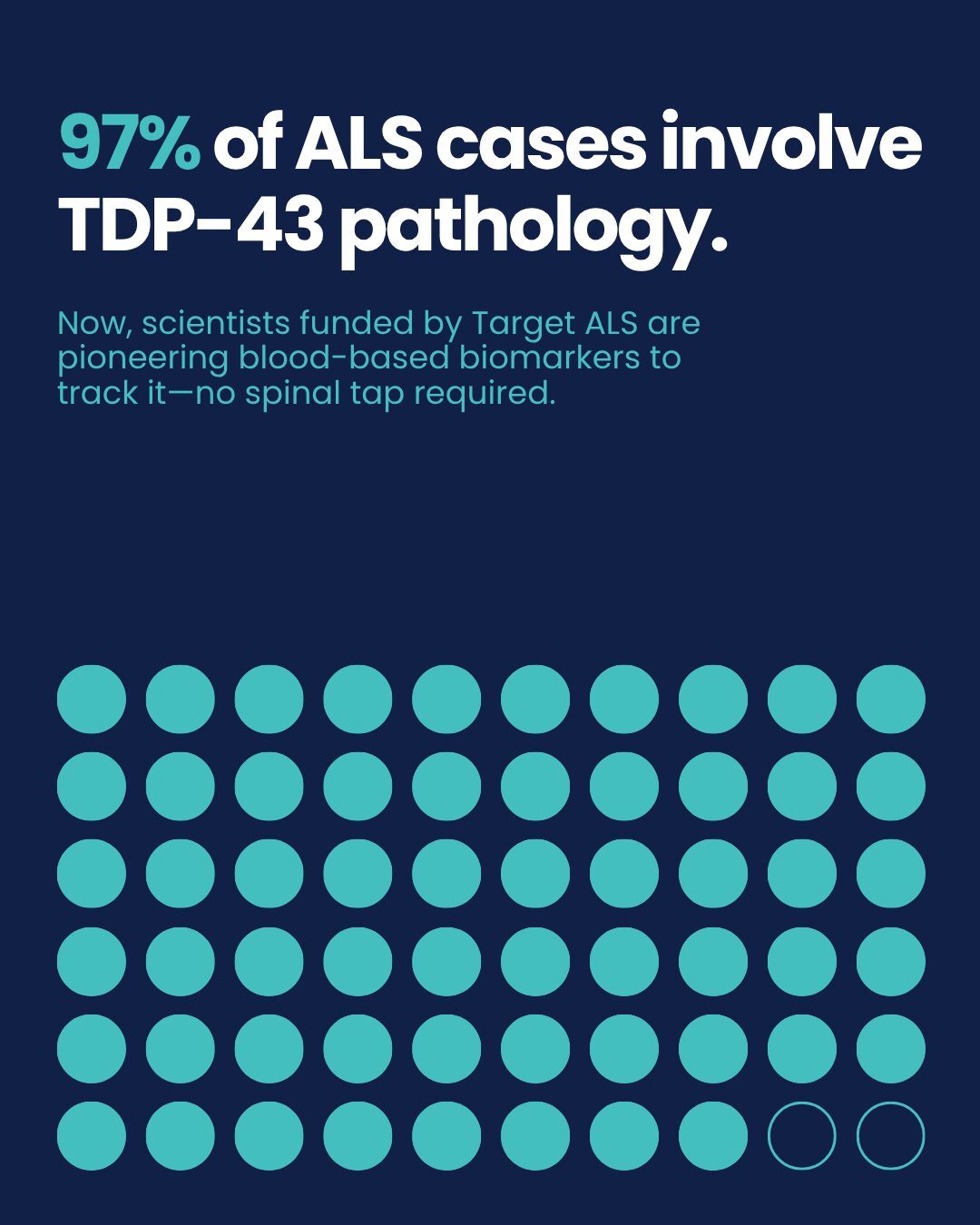In May, over 960 people from 32 countries gathered in Boston for the 2025 Target ALS Annual Meeting—including scientists from academia and industry nonprofit leaders, advocates, and those living with ALS. In his opening remarks, which follow in a written transcript below, our CEO, Dr. Manish Raisinghani, reflected on the impact of this global gathering.
Dear Friend of Target ALS,
It gives us great pride that over 960 attendees from over 32 countries that include people with ALS and their loved ones, along with representatives from over 152 pharma/biotech/VC, 143 academic institutions and 47 non-profits organizations were part of this unique gathering in Boston from May 6th to May 9th for the Target ALS 2025 Annual Meeting.
Together, these individuals represent the Target ALS ecosystem, its collective strength, and its ability to have an exponential impact to accelerate towards our vision that Everyone with ALS Lives.
It is only by working together that we will succeed in our mission. As our ecosystem continues to gain momentum, I want to share with you the uniquely holistic approach we are taking to accelerate the best ideas in ALS research from anyone, anywhere in the world.
We have three strategies:
- Research We Fund – Where we support the best ideas on ALS research from around the world while insisting that scientists with complementary expertise work collaboratively on the same idea. Broadly, the focus of these projects includes understanding the fundamental biology of the disease, translation of ideas from the lab towards the clinic, and discovery of biomarkers.
- Research We Enable – By providing scientists worldwide access to a broad suite of research tools and resources from our core facilities. These tools, ranging from simple yet critically needed reagents like antibodies to precious human biosamples and multi-omic datasets, are accessible to industry and academia with no reach-through on Intellectual Property (IP). Over 1650 projects have already used these tools, and these numbers continue to grow.
- Research We Conduct – A new area for us. The goal here is not to generate IP for the foundation or publications for our science team, but to address long-standing, intractable challenges that have faced the ALS research landscape. We have a Global Natural History Study ongoing that is creating the most diverse and comprehensive repository of biofluids and multi-omic datasets for the worldwide community.
Coming out of the 2025 Target ALS Annual Meeting, I’m more convinced than ever that we’re on the right track with these approaches.
Over three days, we saw more than 80 speakers take the stage to present progress made by Target ALS-supported projects focused on drug discovery, biomarkers, and understanding the fundamental biology of the disease. The staggering range of cutting-edge work covered areas like targeting C9orf72, TDP-43, and HERV-K to treat ALS, advancements in biomarkers like the refinement of speech-based digital phenotyping tools and the role of cryptic peptides, new frontiers in fundamental understanding of RNA biology, epigenetics, neuroinflammation, and gut microbiome, etc. This meeting showcased a collaborative approach to achieve progress underlined by a sense of urgency and purpose.
What struck me most was that many of these projects were funded within the past year. That speed, from idea to funding to real, visible progress, is emblematic of the urgency in the Target ALS approach. It is not just a slogan, it is at the core of who we are. While funding agencies can take seven to nine months to move money after project proposals are submitted, we commit to doing it in just eight weeks. That pace is intentional. We’ve designed our review process to be both rigorous and fast, because people with ALS and their families cannot afford to wait.
This isn’t a new mindset for us. Even in the early days when Target ALS was first formed, our approach was driven by urgency. We wanted to move quickly but deliberately, funding the best ideas on ALS without becoming the bottleneck. Our grant review process gives reviewers six weeks to evaluate proposals, space for structured discussion, and even a window to revisit and revise their opinions. That intellectual freedom is rare, and many of our reviewers have said how much they value it.
The meeting is always a powerful reminder of why this matters. From the early-stage clinician talks on precision medicine and T cell responses, to the Springboard Fellows presenting on transposable elements and metabolic dysfunction, to the closing sessions on neuroinflammation and TDP-43 drug discovery—every moment underscored the need to keep pushing forward. The energy in the room was palpable. These scientists aren’t just presenting ideas; they’re building the future of ALS research. And our mission is to make sure they have the support they need to move fast and think big.
In these challenging times for scientific research, we must continue to take educated risks, move nimbly, and always remain focused on our mission to break down barriers to find effective treatments for ALS. At Target ALS, we’re not just funding science—we have built the roadmap to holistically support the best ideas to accelerate towards breakthroughs. That’s what this meeting reflected. That’s what we’ll continue to do.
I want to thank our board of directors and members of the IRC, who are a source of wisdom for us, and I want to acknowledge the relentless dedication of my colleagues on the Target ALS team. It is a privilege to work with them. I would also like to extend my gratitude to people with ALS, their caregivers and families, as well as the scientists who are championing the research, which we believe is the highest form of care.
Manish Raisinghani,
CEO, Target ALS




